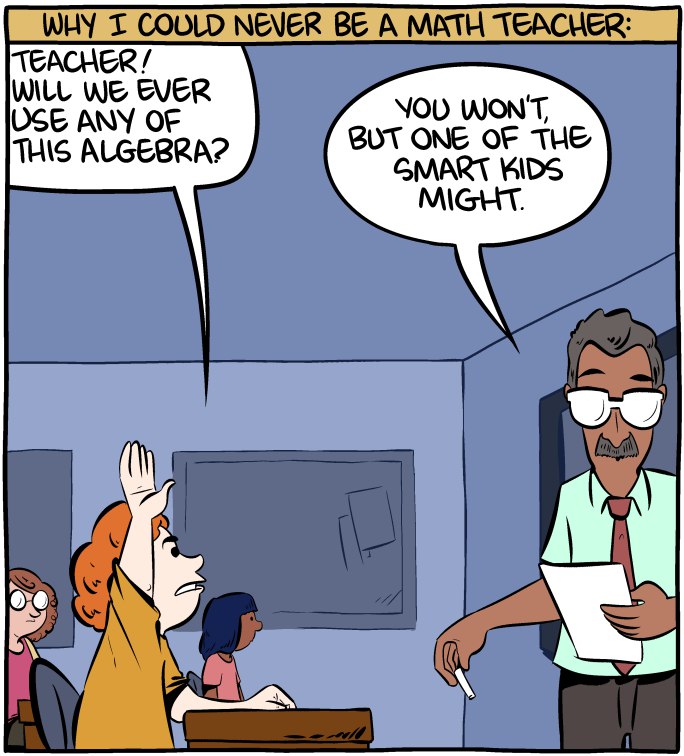Ranter
Join devRant
Do all the things like
++ or -- rants, post your own rants, comment on others' rants and build your customized dev avatar
Sign Up
Pipeless API

From the creators of devRant, Pipeless lets you power real-time personalized recommendations and activity feeds using a simple API
Learn More
Comments
-
How about using a library with true random numbers, which are good enough to be used in encryption stuff?
It looks like u a using pseudo random numbers at the moment -
Of you choose a random element from [1,2,3,4,5,6], they will have equal probability of 1/6 = 16.66%
Now, if you chose from [1,1,2,2,2,3,3,4,5,6], probabilities change to
1: 2/10 = 20%
2: 3/10 = 30%
3: 20%
4, 5 or 6: 10%
Now you need some reverse engineered maths to input avg and stddev, and produce the corresponding array. -
@gosubinit an easier task would be to concatenate [1,2,3,4,5,6] a thousand times into a single array and pick an element randomly, which should be better than rand()%6+1
-
@Lensflare if I understood correctly, @donuts wants to be able to skew the results towards a given average and standard deviation, so I illustrated the concept.
I think your suggestion will produce equal probabilities for all results, right? -
 donuts232474y@gosubinit I read afterwards it's like getting the inverse of a CDF function which kind of looks like what a hashing function for a Map usually does.
donuts232474y@gosubinit I read afterwards it's like getting the inverse of a CDF function which kind of looks like what a hashing function for a Map usually does.
But then how do you create the right formula based on the parameters... I assume there so lib they already does since it's probably a common problem in the computing math/stats world so wondering if anyone knew existing solutions/libs
Related Rants

 Math is hard.
Math is hard. When you wanted to know deep learning immediately
When you wanted to know deep learning immediately :)) finally a good answer
:)) finally a good answer
I want to run a simulation like rolling a dice N times and find out what's the distribution/probability of getting certain SUMs after the rolls.
However the dice is more likely to land on a lower number, and/or depends on what the number it landed on previously.
Stats wise I think ideally I want to be able to just input the avg, standard deviation, and skewness into a Random class constructor, and then ask it for N "random" numbers.
question
stats
math